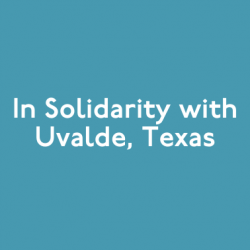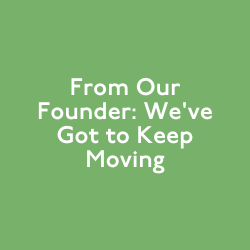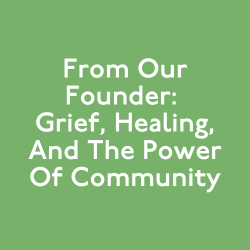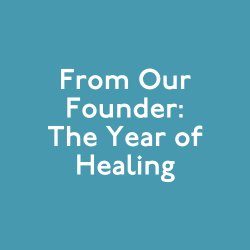The word “judgement” is prevalent in schools, especially high schools. As young adults grow into themselves, every quirk can become subject of teasing or questioning. Sometimes it feels like every little mistake you have made will be analyzed and used against you in some kind of way.
This isn’t just limited to schools, and carries over to professional life down the road. People become afraid of saying the wrong thing, of wearing the wrong thing, or making a mistake on a report. It can lead people towards the pursuit of perfection, an impossible goal that can cause anxiety.
But it doesn’t need to be this way. Judgement is not condemnation. Judgement is an acknowledgement that we are on a journey, and it’s not always going as we hoped.
Judgement was on my mind often earlier this fall. Coming off the Jewish High Holy Days, which usually fall in early September, judgement is a central theme.
The first holiday is Rosh Hashana, the Jewish New Year, in which we reflect on the past year. We celebrate our accomplishments, learn from our mistakes, and honor the struggle within our successes and our failures. We also take time to look forward and set intentions for the year ahead.
On Yom Kippur, a Day of Atonement that falls ten days after Rosh Hashana, we fast. Fasting connects us to those who experience hunger and suffering on a regular basis. We fast to keep those lost in the Holocaust and other horrendous events at the forefront of our minds, to honor their sacrifice. We fast to focus on our own development by withholding short term gratification of the mind and body, focusing instead on strengthening our mind and spirit.
Yom Kippur is also considered the Day of Judgement. We ask for forgiveness and pray that it is granted. It is a powerful tradition that keeps us in balance with our faults and our ability to overcome them. We all make mistakes, we all have flaws, but we can all ask for forgiveness, an act of humility that keeps us grounded, and rise again to do better next year.
It’s a tradition in our house to convene friends and family to break the fast of Yom Kippur when the sun goes down. We break bread and reflect on the year together. There’s something powerful about stating your reflections, intentions, and sins or regrets out loud. It’s as if by saying them out loud we make them real, and we invite our collective community to hold us accountable in making those changes, in improving upon ourselves, in following through on those commitments and intentions.
A friend who was particularly tough on himself questioned this ritual. He asked the table, “Should I not be judging myself?”
It’s true that we often tell people not to judge others, but the truth is deeper than that. Through self-reflection and self-judgement, we recognize our own imperfections and enable ourselves to judge others with empathy. The act of revisiting your own challenges is a reminder that we don’t know what’s going on beneath the surface–that’s what makes our ritual so powerful.
The point is, the critical weight of judgement is not a burden for us to carry; it’s a reminder that we deal with issues that may be common struggles for others as well.
When students learn how to express their emotions in a healthy way, it breeds empathy in the school. Understanding our own pain goes a long way towards understanding what others may be going through as well.
Read more about how social media impedes empathy.
A school that has a common language around emotions can diffuse problems before they get significantly worse. A school that collectively takes time to acknowledge and express their emotions creates a safe environment for everyone to feel supported.
Move This World helps give schools the time and space to prioritize this self reflection as well as giving students the skills they need to reflect, set goals, and hold themselves accountable. A key component of Move This World is helping students develop a vocabulary around emotional expression that will allow them to clearly identify how they’re feeling and be able to facilitate a conversation, whether with themselves or with those around them, to work through that emotional state. If students find themselves in a moment of judgement, they will have the skills to step back and ask, why? Is this judgement valid? If it is, how can I learn from this?
From school leaders to students, our own time is limited, and it’s rare that we can make ourselves a priority. But if we can reframe the idea of “judgment” from one of negativity to be a luxury, a gift of self reflection and strength, we will not only be the resilient leaders we’re capable of, we’ll have the tools to cultivate the same intentional space for reflection and renewal in the people who surround us.










